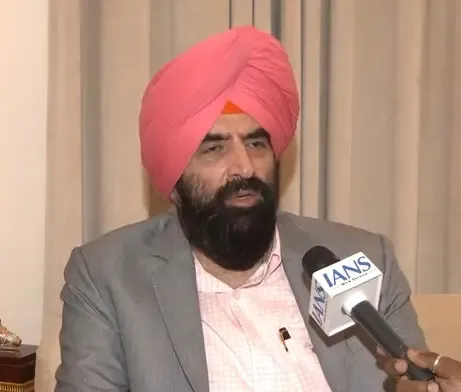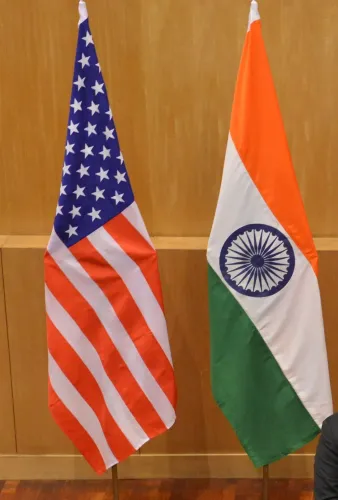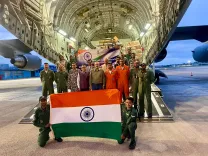India Should Prioritize National Interests Amid US Tariffs, Says P.S. Chandhok

Synopsis
Key Takeaways
- India must prioritize its national interests amid US tariffs.
- Current tariffs on India are the lowest in Asia.
- Potential for increased exports due to comparative advantages.
- India and Iran should enhance trade through rupee trade mechanisms.
- National interest will guide decisions on oil procurement.
New Delhi, April 5 (NationPress) With the introduction of US reciprocal tariffs shaking the global economy, India must carefully evaluate its response while ensuring the protection of its national interests, stated Pervinder Singh Chandhok, a prominent member of the India-Iran and Middle East Chamber of Commerce based in the UAE, on Saturday.
In a conversation with IANS, Chandhok expressed his admiration for US President Donald Trump, noting, "His ambition to significantly enhance his nation's economy has led him to impose new tariffs unilaterally—an action that many countries find contentious." Chandhok, a second-generation Indian entrepreneur residing in Tehran, emphasized the necessity for India to develop a strategy that aligns with its national priorities amid this global challenge.
The tariffs imposed on India, set at 27 percent, are the lowest in comparison to its Asian counterparts, such as 34 percent on China, 36 percent on Thailand, 32 percent on Indonesia, and 46 percent on Vietnam.
This situation is projected to provide India with a competitive edge, potentially boosting exports in specific sectors in the long run, as suggested by a recent SBI report. Given that India's exports to the US account for merely 4 percent of its GDP, the 27 percent increase in tariffs will likely have a “limited” effect, according to the report released on Friday.
When asked about enhancing trade relations between India and Iran, Chandhok remarked that India and all Middle-Eastern nations—including those currently facing trade restrictions due to third-country sanctions—should aim to broaden the rupee trade mechanism as much as possible.
"Additionally, we should implement preferential tariffs to allow businesses to maximize their potential," he advised during the IANS interview.
Meanwhile, Iran is exploring avenues to renew crude oil supplies to India and is interested in diversifying the trade portfolio, particularly in the petrochemical sector, utilizing the strategically positioned Chabahar port.
India halted oil imports from Iran in 2019 after the US withdrew exemptions from sanctions affecting the country.
Addressing the issue of oil procurement from Iran, Chandhok stated: "Given the current global policies, practices, and sanctions, India must prioritize its national interests and determine the most beneficial course of action. Therefore, national interest will be the key factor in decisions regarding oil purchases."









